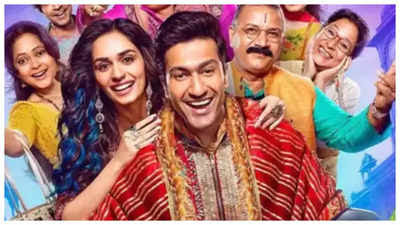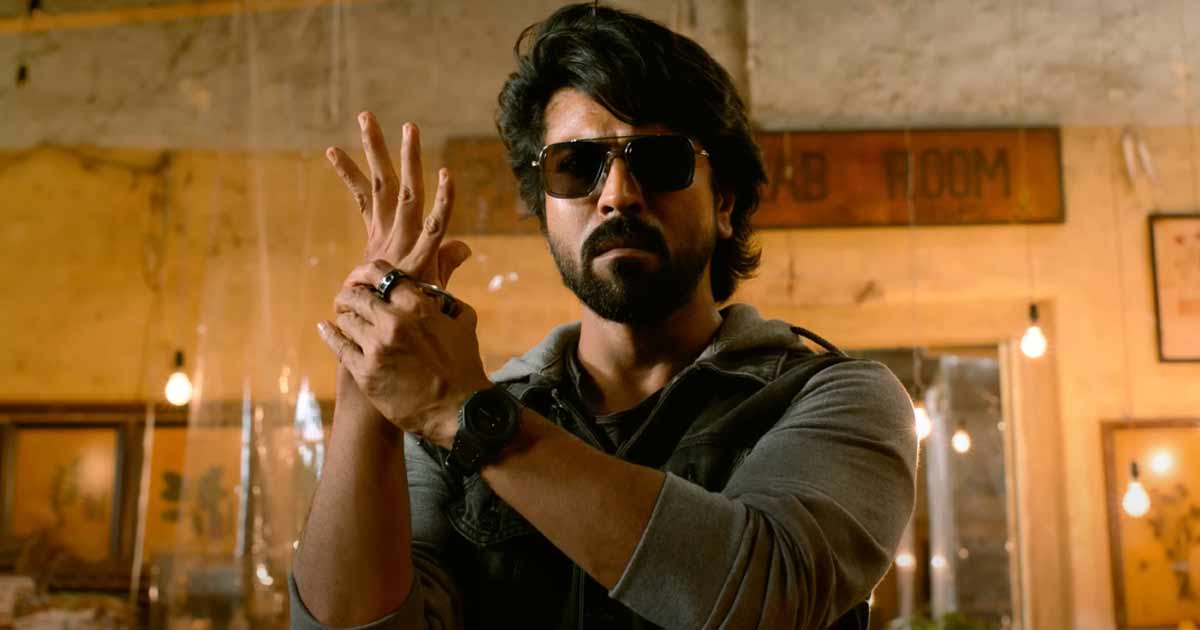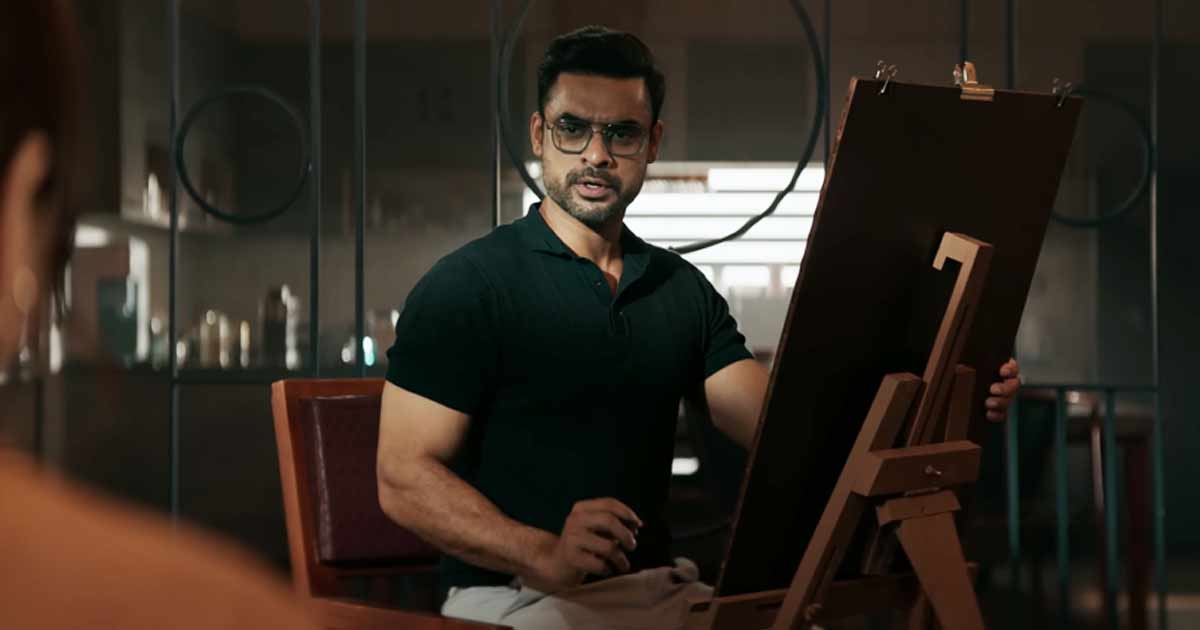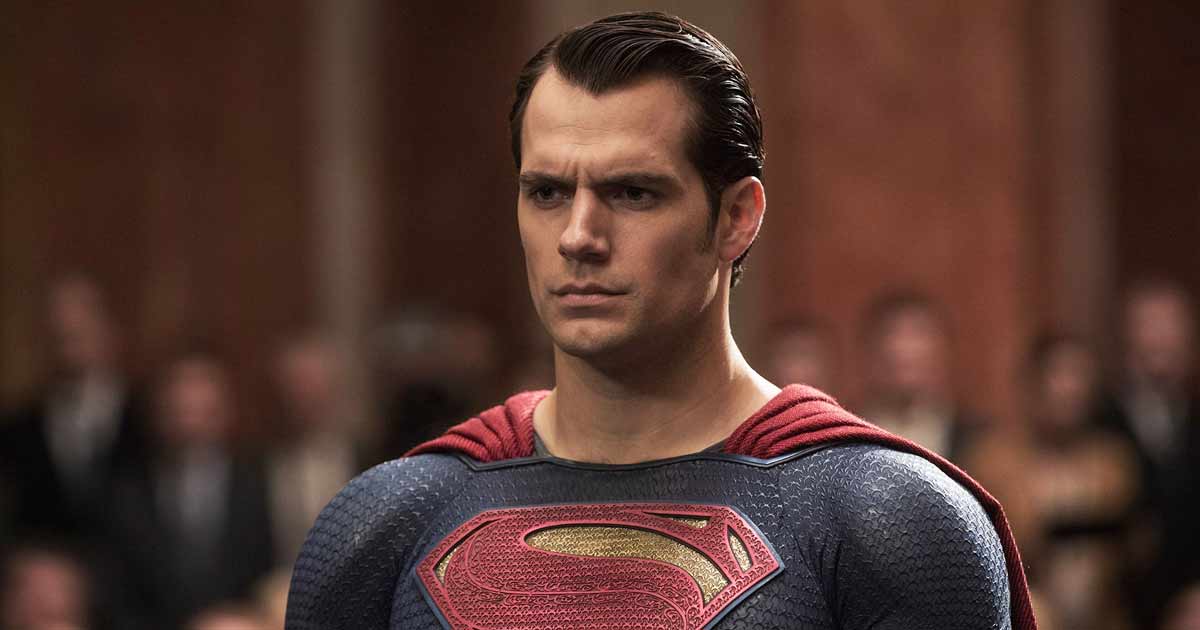
Sai Baba or Bhajan Kumar! Similar identity crisis – Beyond Bollywood
Humanity over identity. Writer-director Vijay Krishna Acharya’s film has a fine social message, but not a great screenplay. Kumud Mishra, Vicky Kaushal put up a sincere show.
Rating: ⭐️⭐️ ( 2 / 5)
By Mayur Lookhar
Every child is born as human, but we [family, society] take away their humanity by imposing social, religious identity. It’s a wonderful line from The Great Indian Family [2023], the social comedy from Yash Raj Films. Writer-director Vijay Krishna Acharya chooses to make this point through his reel family.
Set in Balrampur, Uttar Pradesh, Acharya’s The Great Indian Family comprises of the patriarch Pandit Siya Ram Tripathi [Kumud Mishra], who has carried forward the family tradition [Hindu priests]. His son Ved Vyas has miles to go as a pandit, but he is the only one with a unique talent in the family. During his maiden mundan [tonsure], a miracle occurred as the unhappy child stunned all by singing a bhajan [devotional] song. That was the defining moment of his life as the child would go on to become the most popular Bhajan singer in the region. The people love his singing so much that Ved Vyas Tripathi became Bhajan Kumar [Vicky Kaushal].
He has a family, fame, makes some money too, but Bhajan Kumar aka Billu is not the free bird that he longs to be. He rues how he is offering blessings to pretty girls of his generation – The first such disciple happened to be his childhood crush Aishwarya. The Great Indian Family lulls you into believing that this could be another love story from the Yash Raj Films banner. Bhajan Kumar does find his lady love, but the real story is about identity crisis. In one moment, Bhajan Kumar, and the town, is left questioning his true identity.
Ideally, this conflict should have been guarded, but the makers themselves revealed it in the trailer. We’re not playing any spoilsport here. Bhajan Kumar’s identity crisis is similar to the one faced by a revered saint from Shirdi, Nashik. Well, at least, the godman was perhaps lucky to not face such crisis during his lifetime. The debate has only got stronger in the current social, political environment. Bhajan is no godman. In one moment, he loses his identity, but the man is more enraged at the reaction within the family. His father isn’t around when this identity crisis takes shape. Ved Vyas though believes he is no longer needed in his ’Great Indian Family’.
When the film was first announced via the Kanhaiya Twitter Pe Aaja tack, we wondered whether this film/ character was in anyway related to the late Bhajan king Narendra Chanchal. As it turns out, it isn’t. Bhajan Kumar’s story, crisis maybe totally fictional, but it urges the society to look beyond social, religious identities.
The Great Indian Family does have a fine story. Unfortunately, it takes too long for the real conflict to emerge. The early screenplay hardly builds any engagement. Though important to show, the backstory is overtly stretched. Barring Billu and Siya Ram, one hardly gets a sense of the other characters in the Tripathi family. Linear approaches are safe, but if not backed by qualitative screenplay, a film plunges into the drag mode. Worryingly for The Great Indian Family, the average screenplay is right at the beginning and it drags for around 20-30 minutes. Acharya reveals his true tale close to the hour mark. Is it too late for redemption?
No, there are infinite examples where a film has begun on a dull note but picked up momentum later. The Great Indian Family lifts its tempo once the conflict is revealed. Unfortunately, it slides back into its shell, before the engaging climax spells out the film’s message clearly.
It is very brave of Vijay Krishna Acharya, YRF, and Vicky Kaushal to take up this subject in the current social, political environment where there is a certain clamor for ultra-nationalism. The director subtly condemns moral policing, imposition of any social, religious identity. The Great Indian Family urges to respect India’s cultural diversity, and uphold its constitution, democracy.

Vicky Kaushal makes a sincere effort to pull of this Bhajan Kumar. He’s a bit sluggish to start with. You do question how a Brahmin boy (from a family of priests) isn’t quite your classical Bhajan singer. Hey, even the great Narendra Chanchal improvised in his words to appeal to the masses. Kumar does sport the little braid, but the stylish hairdo isn’t Pandit-like.
Kaushal doesn’t let the inconsistent screenplay impact his intensity. Ther versatile actor embraces the frailties of Bhajan Kumar, but he isn’t ready to compromise on his dignity. He doesn’t hesitate to argue with his uncle [played by Manoj Pahwa]. Earlier, during his first unofficial date with Jasmeet [Manushi Chhillar], he reminds the lady that he might be a simple folk, but you can’t make a mickey out of him. Bhajan Kumar yearns for respect; Vicky Kaushal helps him to earn it.

Kumud Mishra is the power performer here. Well, his character demanded a strong show. He might be the patriarch, but Siya Ram Tripathi’s word isn’t taken as the Gospel truth. Tripathi is a great believer in democracy. When in a bind, the family chooses to cast their decision through an open ballot. Though farfetched for the realist, these scenes are vital in reminding us that this family, this nation functions on democracy, constitution and not any faith. As one who has experienced inter-faith marriage, Mishra was a natural choice to play Siya Ram and display sensitivity in dealing with the conflict at hand. He might be a late bloomer, but as always, Mishra chips in with a confident show.
Manushi Chhillar had a disappointing debut in Samrat Prithviraj [2022]. She had limited scope in The Great Indian Family. Truth be told, she was limited in her screentime in Samrat Prithviraj too. A Jasmeet was needed in Bhajan Kumar’s life. The script (rightly) limits her screentime. Has the former Miss World made most of these opportunities? Like we said in Samrat Prithviraj, the woman has a quality tone. It would be premature to write her off after just two films. She just needs the right role and must back it with requisite intensity.
The likes of Manoj Pahwa, Yashpal Sharma and other members of the supporting cast do a fair job. Sharma plays the rival pandit Mishra, whose greed draws our attention to the commercialization of faith. Whilst his envious attitude smacks of bigotry, political opportunism.
Though never enough to uplift a dull, inconsistent screenplay, The Great Indian Family is efficient in its sound design. There are just a couple of songs, with only Kanhaiya Twitter Pe Aaja track impressing. (Brilliantly sung by Nakash Aziz). Thankfully, Twitter didn’t become X when this song was created.
In a way, The Great Indian Family will perhaps help Yash Raj Film pacify those audiences who labelled Shamshera [2022] as anti-Brahmin. Acharya, who hails from Kanpur, is well versed with Uttar Pradesh’s social, political issues and understands its inclusivity. Acharya’s intentions are noble, but the inconsistent screenplay, uninspiring direction reduce the The Great Indian Family to an average film.
Publisher: Source link



